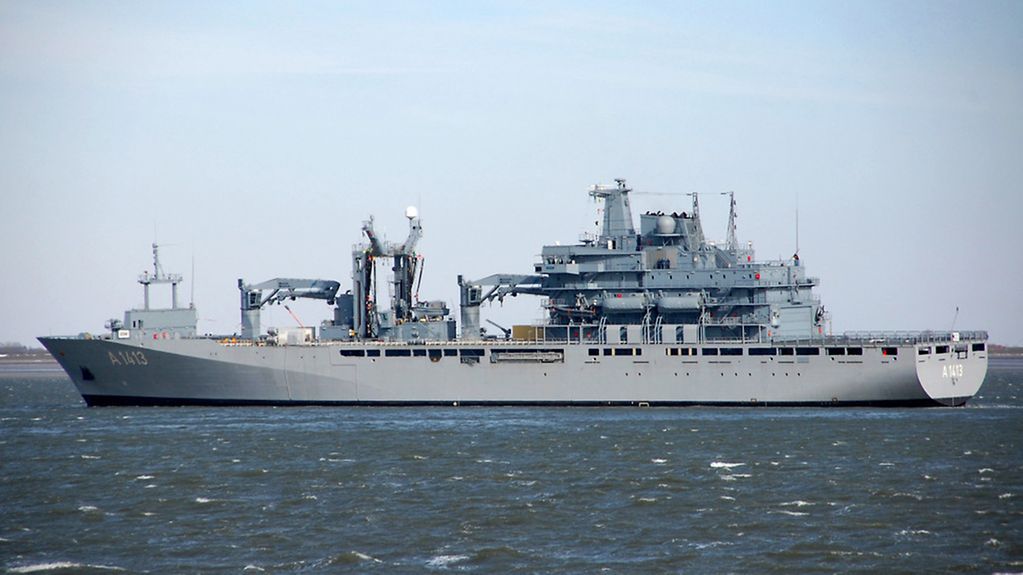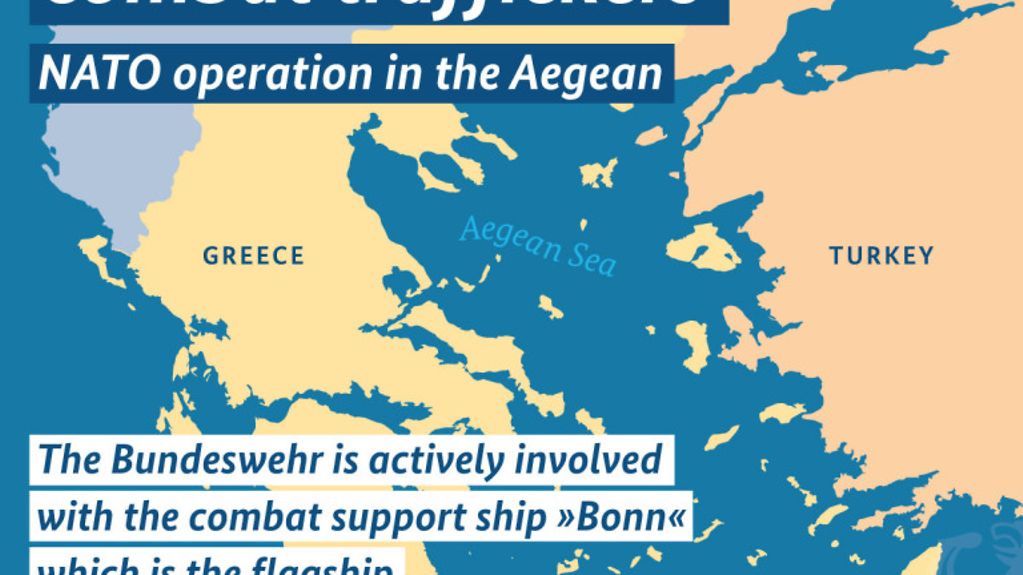NATO in the Aegean
Agreement has been reached on the detailed plans for the NATO operation in the Aegean: NATO ships can now operate at short notice in Turkish and Greek territorial waters. NATO is thus making a valuable contribution to the fight against human traffickers.
2 min reading time

NATO's flagship in the Aegean, the combat support ship "Bonn"
Photo: Bundeswehr/Fiebeler
Turkey and Greece have come to an agreement on important details of cooperation with NATO and Frontex, the European Union’s external border management agency.
Information about the sea area will in future be shared in real time between the NATO vessels and Frontex. Liaison officers will be responsible for ensuring smooth communication, also with the Turkish and Greek coastguards.
Along with the German combat support ship "Bonn" a total of five units are currently operating in the Aegean.
Ships for reconnaissance and surveillance
The existing Standing NATO Maritime Group 2 (SNMG 2) set off for the Aegean following the decision of principle taken by NATO defence ministers on 10 and 11 February.
In future the standing maritime group will be involved primarily in reconnaissance and surveillance in the Aegean. NATO currently has four standing maritime groups. They are part of NATO and are international in their composition. The Standing NATO Maritime Group 2 is one of these four. It operates mainly in the Mediterranean but can be deployed immediately in other crisis-affected areas if required. The SNMG 2 is under the command of the German Navy Rear Admiral Jörg Klein on the combat support ship "Bonn".

Standing NATO Maritime Group in the Aegean
Photo: Bundesregierung
NATO making a valuable contribution
NATO has excellent surveillance facilities, stressed Federal Defence Minister Ursula von der Leyen. "This will enable it to make a valuable contribution to ensuring that the local coastguards responsible and Frontex are successful in the fight against smugglers and traffickers in the Aegean."
The NATO vessels will neither stop refugee boats nor turn them back. They will only gather data and monitor refugee flows. In this way NATO is to act as a link in the chain, facilitating cooperation between the actors involved and ensuring more effective information sharing.
Germany is currently providing the flagship. About 210 soldiers are stationed on the 174 metre long combat support ship "Bonn". It was first commissioned in 2013 and is the German navy’s third modern vessel of this sort, following the "Berlin" (commissioned in 2001) and the "Frankfurt am Main" (commissioned in 2002).
Commenting on other important details, NATO Secretary General Jens Stoltenberg said, "This is an excellent example of how NATO and the EU can work together to address common challenges." He also welcomed the speed at which decisions have been made, because, as he pointed out, close cooperation and the time factor are crucial in the face of crises.